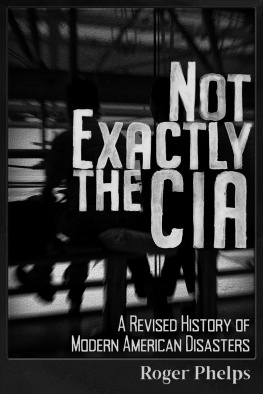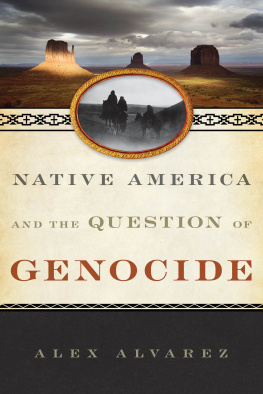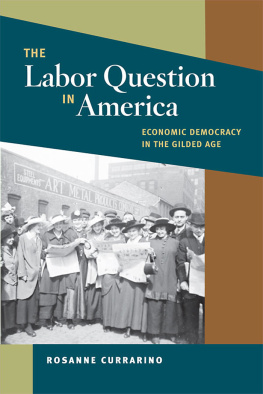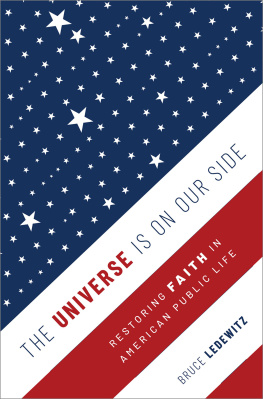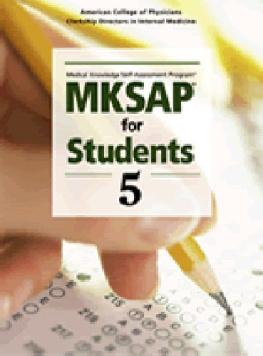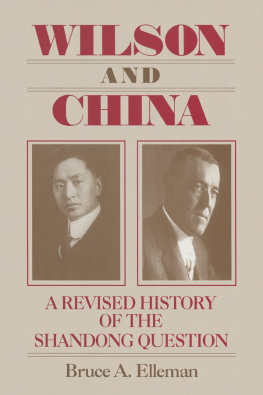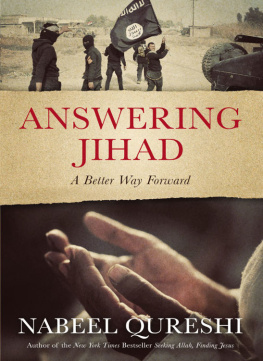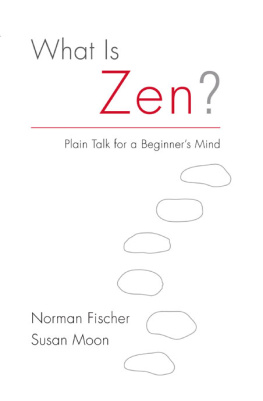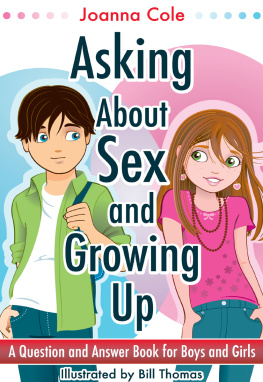

Not Exactly the CIA: A Revised History of Modern American Disasters
Copyright 2019/2020 Roger Phelps. All Rights Reserved
Published by:
Trine Day LLC
PO Box 577
Walterville, OR 97489
1-800-556-2012
www.TrineDay.com
trineday@icloud.com
Library of Congress Control Number:2019952305
Phelps, Roger
1st ed.
p. cm.
Includes references
Epub (ISBN-13) 978-1-63424-260-8
Mobi (ISBN-13) 978-1-63424-261-5
Print (ISBN-13) 978-1-63424-259-2
1. United States. -- Central Intelligence Agency -- History. 2. Intelligence service -- United States. 3. Politics and government 4. Psychological warfare -- United States -- History -- 21st century. 5. Political corruption -- United States. I. Phelps, Roger. II. Title
First Edition
10 9 8 7 6 5 4 3 2 1
Printed in the USA
Distribution to the Trade by:
Independent Publishers Group (IPG)
814 North Franklin Street
Chicago, Illinois 60610
312.337.0747
www.ipgbook.com
When sorrows come, they come not single spies
But in battalions.
Hamlet, Act IV, Scene V
Table of Contents
Preface
I t seems to me that many social tensions today are the result of past coverups; occasions when persons with power to do so conceal under a superficial account the real nature of actions taken; much as an iceberg conceals its actual mass and danger under the surface of the ocean.
I came to write this book after assembling a chronology of events stretching between 1950 and 2016 involving efforts to increase US national security, such as well-known campaigns against communism and later, against terrorism. These were, of course, broadly based societal events, and so I was struck by the fact that the names of particular people occurred over and over for decades. I was struck, by how such a narrow slate of actors were responsible, seemingly, for broad social phenomena of American anti-communist and anti-terrorist agendas.
It seemed this narrow slate of actors deserved more focus. I read everything I could find. I decided I was seeing fragmented pieces of a not-reported whole.
Plato cautioned students to link things together only along natural, discoverable, and sufficiently evident joints (Gr. arthroi). I asked myself, can I legitimately join these pieces actions involving the few actors I had noticed repeatedly and say something about the whole they appear to form?
The record suggests that, for the purpose of scaring Americans into seeking security without questioning the circumstances, a clandestine act of domestic terrorism has been performed roughly every five years over the last four decades. It suggests that the perpetrators have been in positions where they could depend in various ways on agencies of national security. Such a group, the record suggests, includes former U.S. federal agents and their contacts including foreign intelligence and military officials, both active and retired. In their public lives, these men advertise their patriotic anti-communism and counter-terrorism views.
Several good books have described some particular path to 9/11. This book describes one too, and it extends this scary path up to the present day, a time when in America truth has been dismissed in order that a Big Lie cannot be challenged.
The reader should know that official CIA covert operations made up comparatively little of the exploits and derring-do described in this book. With that said, the CIA and other intelligence agencies, some in foreign countries, made up a nurturing culture without which most of the exploits described could not have flourished, and in that way are inseparable from them. For the most part, the exploits were those of former intelligence operatives who were convinced national security policy was too weak. Time and again in my research, when facing a question of whodunit, it appeared with remarkable regularity and frequency that the entity most evidently having the power and the opportunity to have done it was this unofficial loose affiliation composed largely of former agents, which I have referred to in this book as Not-Exactly-the-CIA.
The language in this book is mostly reportorial, journalistic; reporting facts, many of them attributed to persons who have specialized knowledge that an alleged fact is indeed a fact. But some recurring phrases are not purely journalistic, e.g., It is likely that. (borrowed from the field of law). And, in a very few cases, I have used a phrase like, The following is speculation, but I believe it is well-founded (borrowed from academic writing).
With that said, I emphasize that this book does not rely on speculation. As such, it is my hope that the book will not be easily dismissed and that whatever small reputation it may acquire will be one fairly bestowed.
To tell others that
It is a rumor
Will not do.
When your own heart asks,
How will you respond?
I think it is fair to say this books story is not easily or naturally deduced or introduced, and it might even be fair to say that the story is barely believable based on normal thinking. This of course defines far-fetched (Merriam-Webster Dictionary). But, so what exactly?
From the Hagakure (Hidden by the Leaves), Book of the Samurai
Introduction
Blush not in actions darker than the night
Will shun no course to keep them from the light.
Shakespeare, Pericles

Former FBI agent George Wackenhut, Cabazon Indian Security- Wackenhut Services Inc. joint venture
How Did We Get Here?
I n 2016, before the close and controversial election of Donald Trump as U.S. president, nearly all Americans had asked themselves, What happened to America? Some meant How did America lose jobs and global strength? while others meant, How did we lose democratic control of our government?
To the second question, one answer starts in a seemingly unlikely place: the desert near the California-Mexico border, home of the poverty-stricken Cabazon Band of Mission Indians.
This reservation was exploited by political zealots, non-Indians, to further plans for America that were truly radical, but went largely unnoticed.
US Supreme Court Justice Louis Brandeis wrote, in 1928:
The greatest dangers to liberty lurk in the insidious encroachment by men of zeal, well meaning, but without understanding.
Over the decades following World War II, exploits by history-makers Mao Zedong, Joseph McCarthy, Fidel Castro, Nikita Khrushchev, and John Kennedy inspired fervent zeal among U.S. anti-communists.
But the Vietnam war brought, among other horrors, news of the My Lai massacre and the murderous CIA Operation Phoenix. The public began to learn that through its operations directorate, the CIA was doing much more than updating the president on how things stood in foreign countries it was doing something about those countries. Operations were sacrosanct and secret, period; exempted from civilian oversight even from CIA analysis agents. As former CIA agent Ray McGovern relates,
I found it strange that subway-style turnstiles prevented analysts from going to the operations side of the house.

